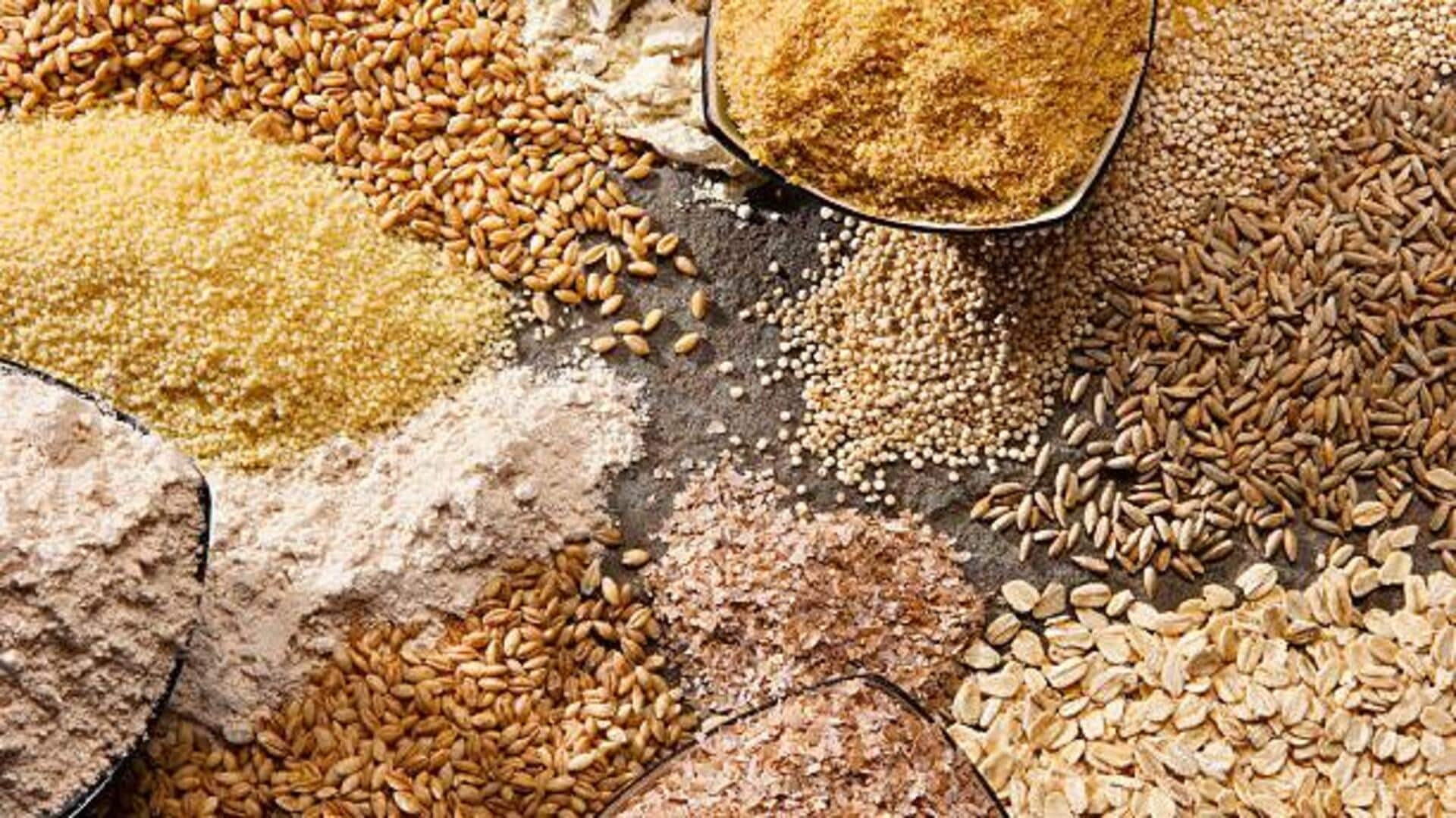
Whole grains: Separating fact from fiction
What's the story
Whole grains are widely talked about in the health food conversation, but a few myths still surround their benefits and disadvantages. These misconceptions can confuse people and keep them from making informed food choices. By busting these common myths, you can get a clearer picture of what role whole grains play in a balanced diet and make choices that suit your health goals.
#1
Myth: Whole grains are always high in calories
One common misconception is that whole grains are inherently high in calories. Yes, they do contain calories, like any other food group, but they aren't necessarily calorie-dense. The key is portion control and mindful eating, and the fact that whole grains provide essential nutrients such as fiber, vitamins, and minerals. All these nutrients lead to satiety, which can help you manage overall calorie intake.
#2
Myth: All whole grains are gluten-free
Many people think all whole grains are gluten-free, which is not true. While some whole grains such as quinoa and brown rice are gluten-free, others (like wheat, barley, and rye) do contain gluten. It is important for people suffering from celiac disease or gluten sensitivity to choose their grains carefully to avoid unpleasant reactions.
#3
Myth: Whole grains cause weight gain
There is a myth that eating whole grains makes you gain weight. In reality, whole grains can be a part of a weight management plan, as their high fiber content promotes fullness, reducing the chances of overeating. Studies have shown that diets rich in whole grains may actually promote weight loss when coupled with an overall balanced diet.
#4
Myth: Refined grains are just as nutritious as whole grains
Some people think that refined grains provide the same nutritional benefits as whole grains, but that's misleading. In the processing, refined grains lose a lot of nutrients that are present in the bran and germ layers of the grain kernel. Hence, they are devoid of fiber and other important vitamins found in the unrefined ones.
#5
Myth: Eating whole grains is complicated or time-consuming
Another myth is that adding whole grains to your meals has to be a lot of work or time. In reality, many whole grain options are easy to prepare quickly or come pre-cooked and can easily be added to salads or soups without much effort whatsoever in meal prep routines at home kitchens across the globe today!